Popular DSLR cameras for both beginners and pros.
DSLR (Digital Single-Lens Reflex camera) is a camera body with a viewfinder, based on the use of a mirror located behind the lens at an angle of 45° to its optical axis. It allows live viewing directly through the lens.
When comparing DSLR and mirrorless cameras, the first one’s mirror is movable. It redirects the light from the shooting lens through the pentaprism to the aperture, through which the photographer directly looks.
Today, many camera brands are focused on mirrorless models, but DSLR remains the most frequent choice of beginners and pros. Unlike its main competitors, DSLRs have a huge number of functions, accessories, and optics. What is more, they are reliable and for any budget.
Due to the popularity of DSLR cameras, each manufacturer has several dozens of models for different users, ranging from the simplest model for about $400 to a professional one for about $5,000.
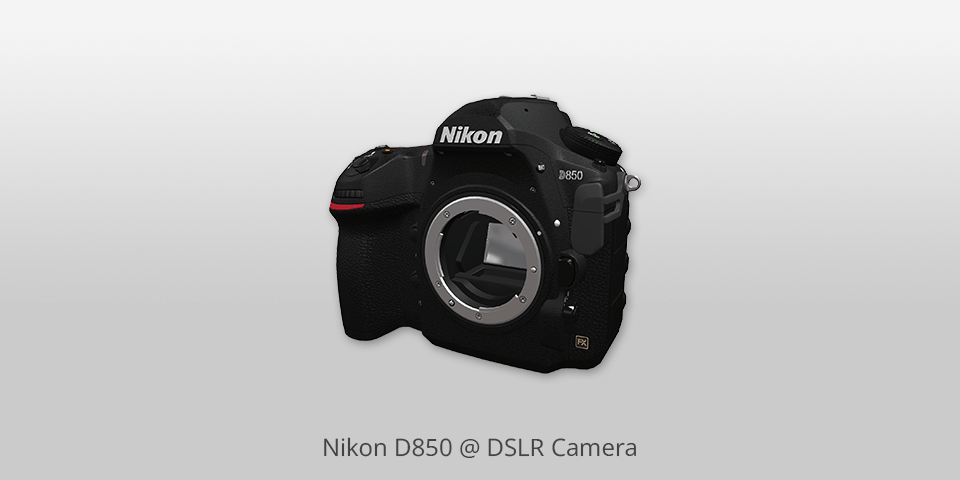
Megapixels: 45.7MP | Max video resolution: 4K | AF points: 153
As a photographer, I have had the opportunity to use this digital SLR camera, and I must say that it offers some impressive advantages. One of the standout features is its sensor, which captures incredible detail without the need for a low-pass filter. This allows for stunning image quality and sharpness.
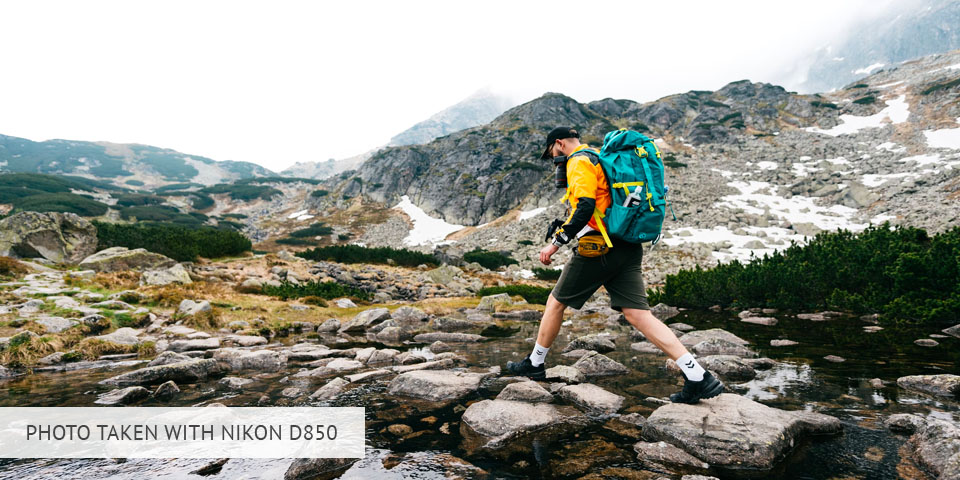
Being one of the best cameras for sports, the D850 also boasts a remarkable 45.7 megapixels of resolution, setting a new benchmark for image quality. It excels in various aspects such as autofocus, dynamic range, sensitivity, Speedlight control, battery life, and image processing options. These advancements make it a DSLR like no other.
However, like any camera, the D850 does have a few disadvantages. One of the main issues is its price, as it falls into the higher-end range of DSLRs. This may make it less accessible for photographers on a tighter budget.
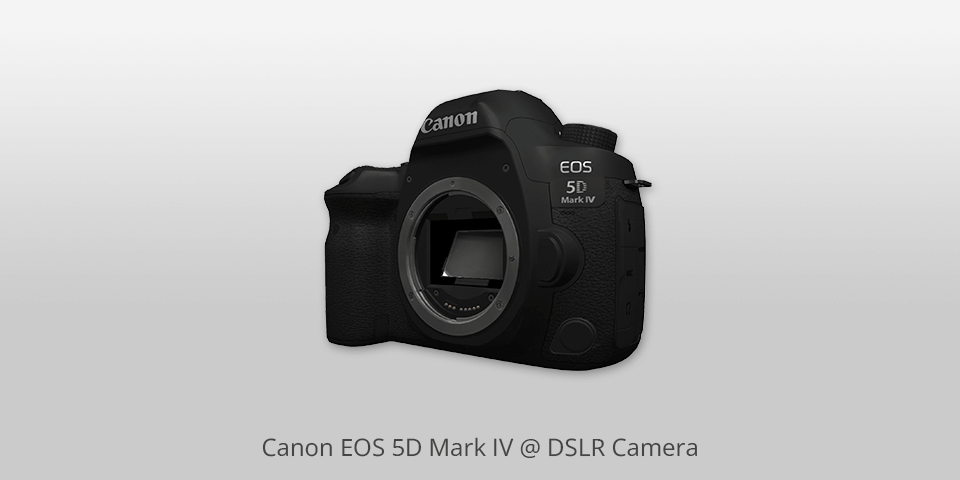
Megapixels: 30.4MP | Max video resolution: 4K | AF points: 61
Image quality with the EOS 5D Mark IV is impressive. The images it produces are clean, with good contrast and accurate colors. Even at higher ISO settings, the camera manages to keep noise levels under control, making the images usable.
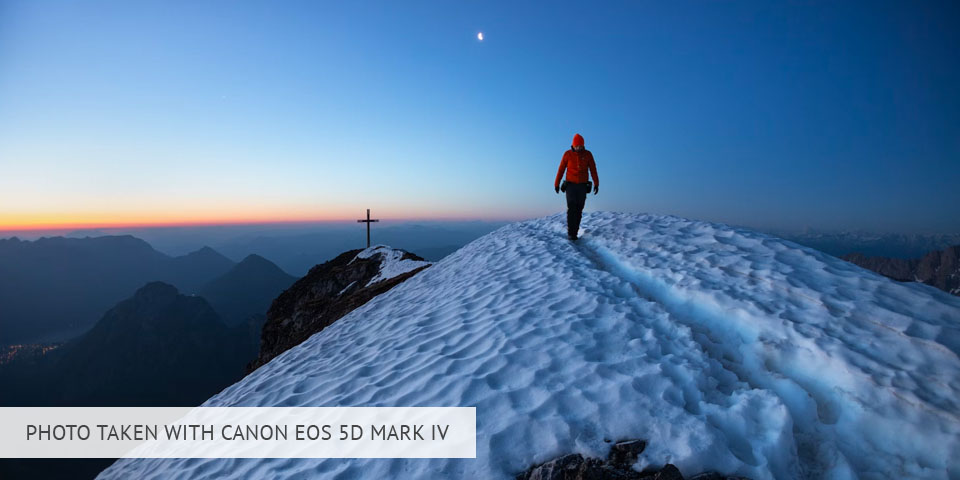
In terms of usage, this camera offers a large, bright electronic viewfinder with 100% coverage, making it easy to compose shots. The rear touchscreen is also a useful feature, allowing for quick image comparisons and rating of captured images in-camera. The integrated GPS functionality is a nice addition for geotagging images.
But one notable missing feature is the ability to shoot HDR images, which is something that many modern DSLR cameras for photography offer. Another fact to mention is that the camera's 4K video capabilities are limited to Motion JPEG format, which may not be as efficient as other video codecs.
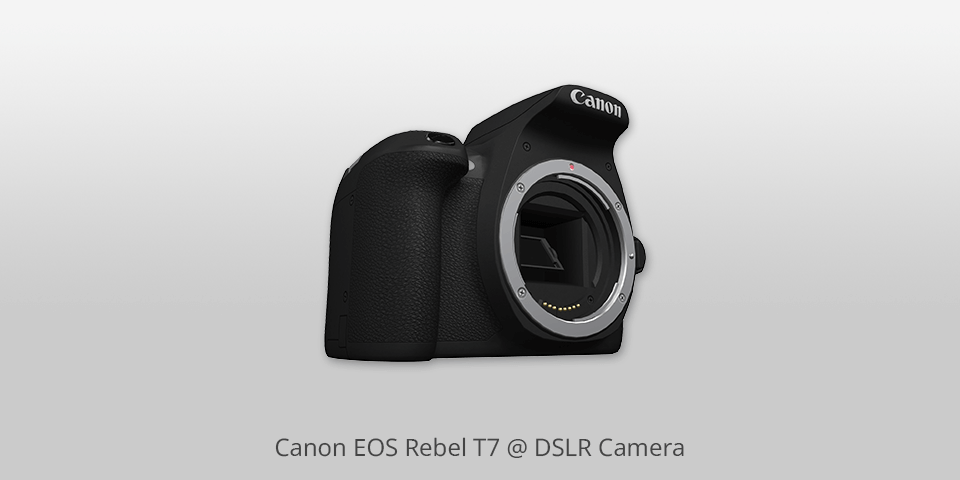
Megapixels: 24.1MP | Max video resolution: Full HD | AF points: 9
Canon EOS Rebel T7 is an entry-level DSLR camera with a 24-megapixel image sensor and a high-definition video recorder. It offers a wide range of shooting modes to suit various photography styles, making it suitable for both beginners and advanced photographers.
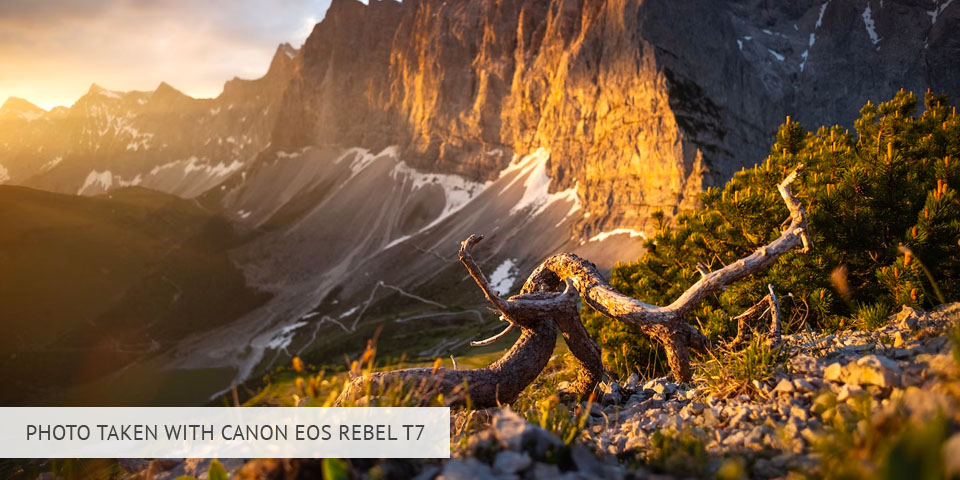
This camera comes with an 18-55mm lens, as well as a battery and charger, offering a complete package for those starting out. It has a 3-inch LCD screen with 920k dots, which provides a clear and detailed view of your images.
While the Canon EOS Rebel T7 is generally easy to operate with a user-friendly layout, there are a few areas where it may fall short. Some users have reported difficulty with the camera's autofocus system, especially in low-light conditions.
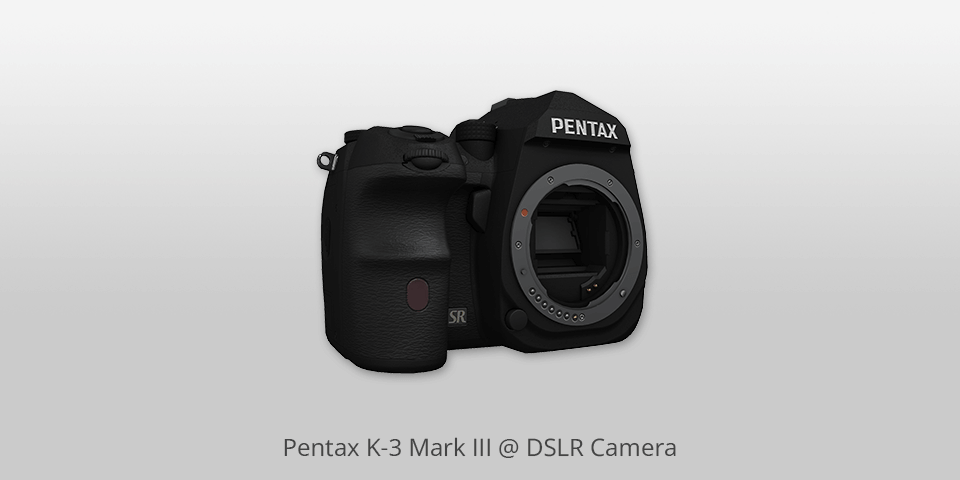
Megapixels: 25MP | Max video resolution: 4K | AF points: 101
This DSLR camera offers a 101-point AF system, which ensures precise focusing, and it even has the capability to shoot stunning 4K videos. The optical viewfinder of this camera is a standout feature, with its large size and high magnification, providing a clear and immersive shooting experience.
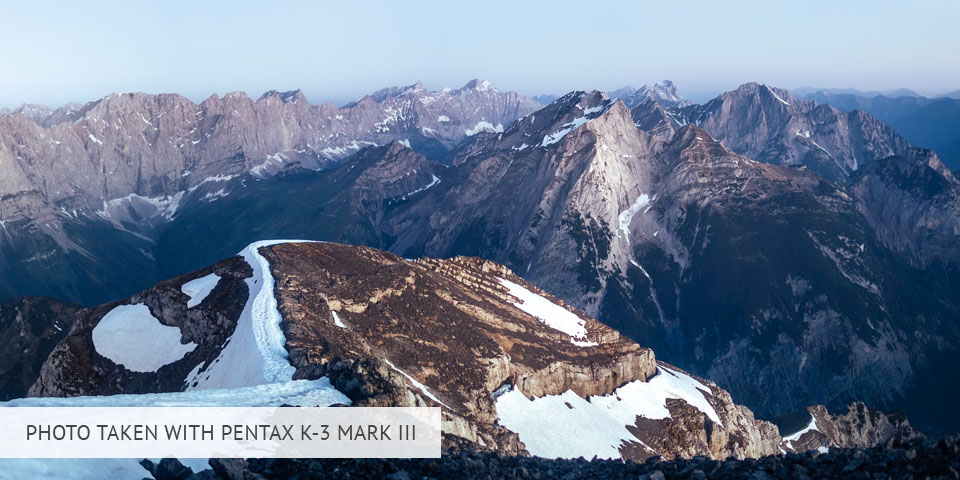
One thing I truly admire about the K-3 Mark III is its robust build. Made with a weatherproof and dust-resistant magnesium alloy body, this camera can withstand some serious conditions. I can personally vouch for its durability, as I once dropped it during a thunderstorm, and it didn't even flinch.
Some users have noted that the fixed rear screen feels outdated, especially considering the premium price point of this camera. Additionally, while the camera is highly capable, it may not be as popular as some of its mirrorless counterparts.
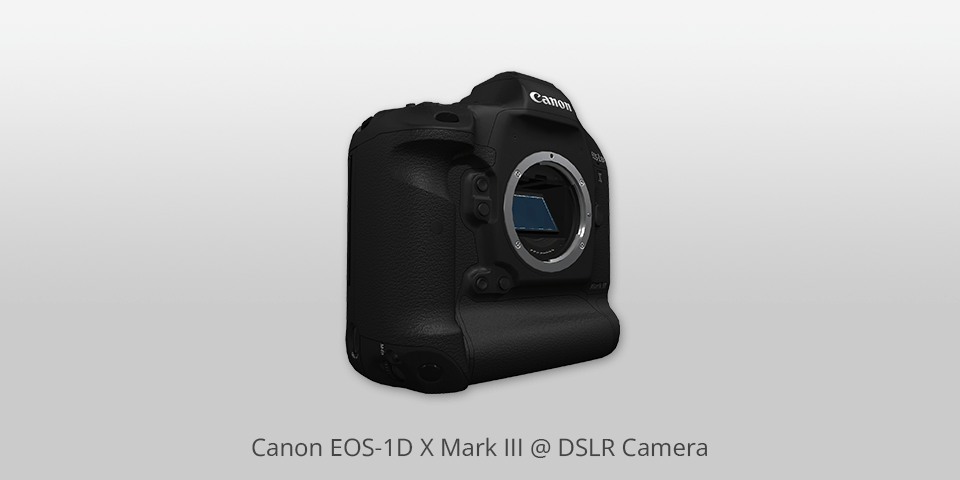
Megapixels: 20.1MP | Max video resolution: 4K | AF points: 191
First and foremost, this camera for landscape photography is an absolute powerhouse when it comes to performance. It boasts a new 20.1-megapixel sensor and a DIGIC X processor, which together provide outstanding image quality, especially in higher ISO ranges. This means you can capture stunning photos even in challenging lighting conditions.
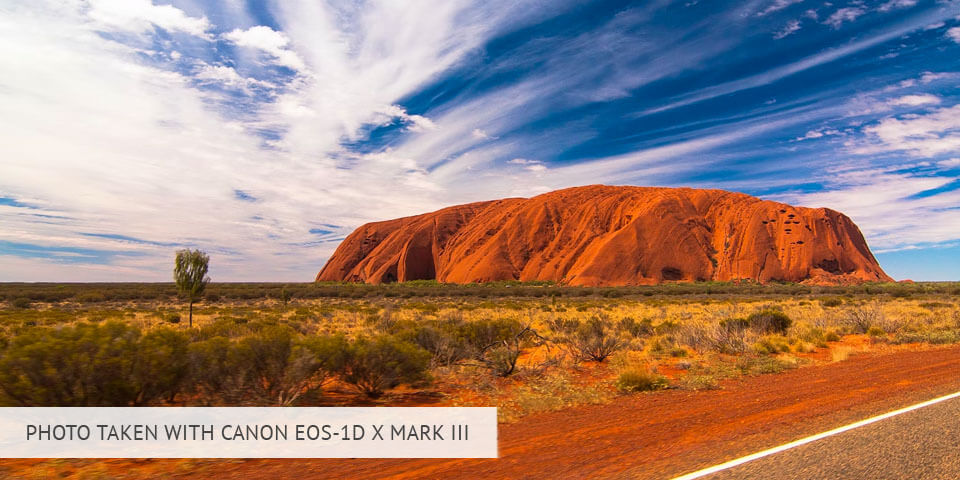
The EOS-1D X Mark III is specifically designed for action and sports photos, and it truly excels in this area. It has an impressive AF system with a 191-point array that delivers lightning-fast autofocus performance in both viewfinder and Live View shooting modes.
The camera's price point is quite high, making it more suitable for professional photographers or enthusiasts with a significant budget. The camera's size and weight may be a challenge for some photographers, especially if they prefer a more compact and lightweight setup.
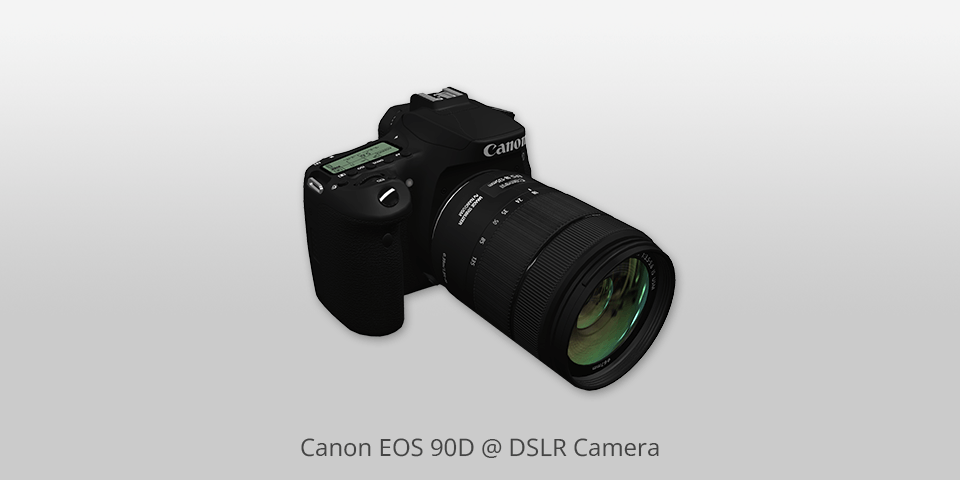
Megapixels: 32.5MP | Max video resolution: 4K | AF points: 45
First and foremost, the Canon EOS 90D boasts a whopping 32.5-megapixel sensor, which delivers exceptional image resolution. This is fantastic for capturing every minute detail and producing high-quality prints. The camera's skin tone reproduction is outstanding, ensuring that your subjects look their best.

One of the standout features of the 90D is its ability to record uncropped 4K video. This allows videographers to capture stunning footage with great clarity and detail. Moreover, the camera's high burst rate is perfect for capturing fast-moving subjects, making it a great choice for sports or wildlife photos.
The 90D is a midrange DSLR camera, so it's not the most compact or lightweight option out there. If you're someone who values portability and prefers a lighter camera, this might not be the best choice for you.
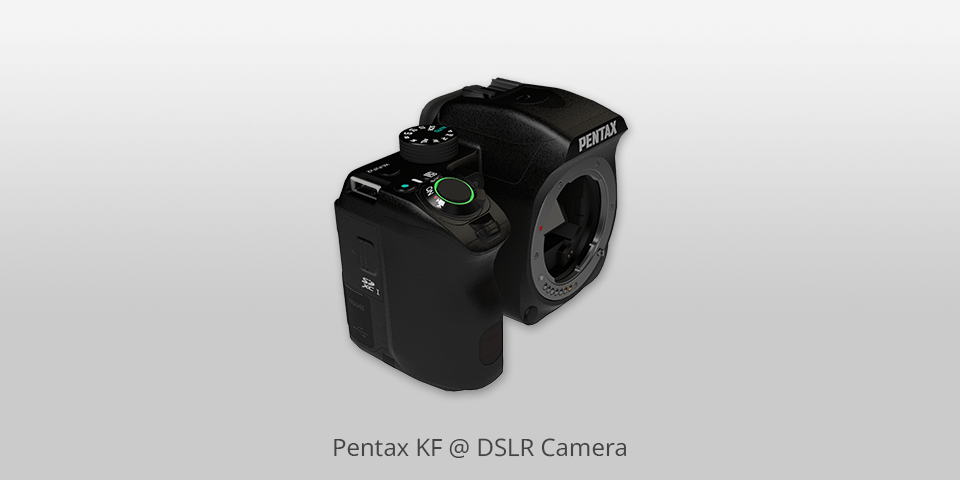
Megapixels: 24MP | Max video resolution: 4K | AF points: 11
First off, one of the key strengths of this DSLR camera is its optical viewfinder. It provides a real-feel, accurate view of your subject, which is fantastic for composition and focusing. You also have a variety of shooting modes to choose from, including auto, full auto, portrait, landscape, and flash off.

Now, let's talk about the camera's build quality. The Pentax KF is designed for rugged outdoor photography in demanding settings. It's dustproof, weather-resistant, and can handle freezing temperatures. With 100 seals on the body and outstanding cold-proof performance down to -10°C, you can take this camera on your wildest adventures without worrying about damage.
Now, let's address some potential downsides. While the Pentax KF has a built-in flash and external flash support, some users have reported that the built-in flash could be more powerful.
The camera's menu system can be a bit overwhelming for beginners, requiring some time to get familiar with all the settings and options.
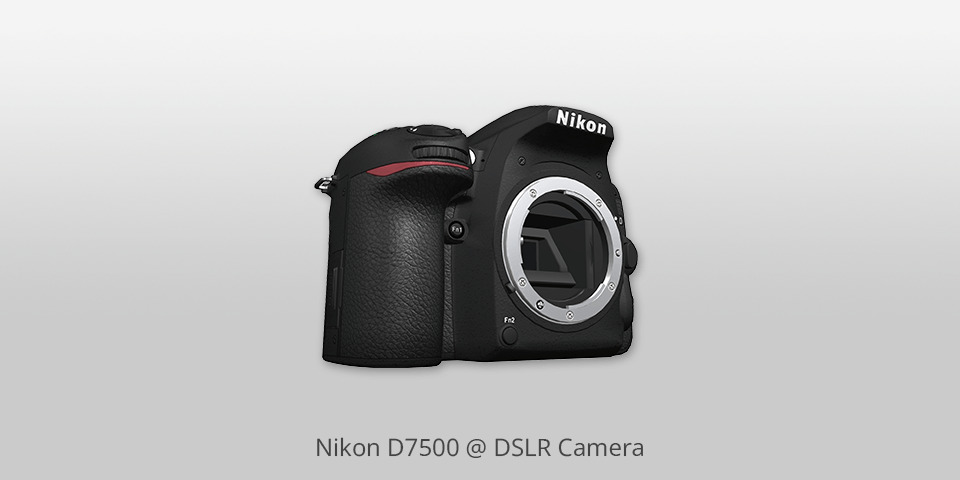
Megapixels: 16MP | Max video resolution: 4K | AF points: 51
One of the standout features of the D7500 is its image quality. This DSLR camera for photography produces stunningly sharp and crisp images. Paired with the powerful Expeed 5 image processor, it offers an excellent balance of resolution and low-noise performance, especially when used with NIKKOR lenses.
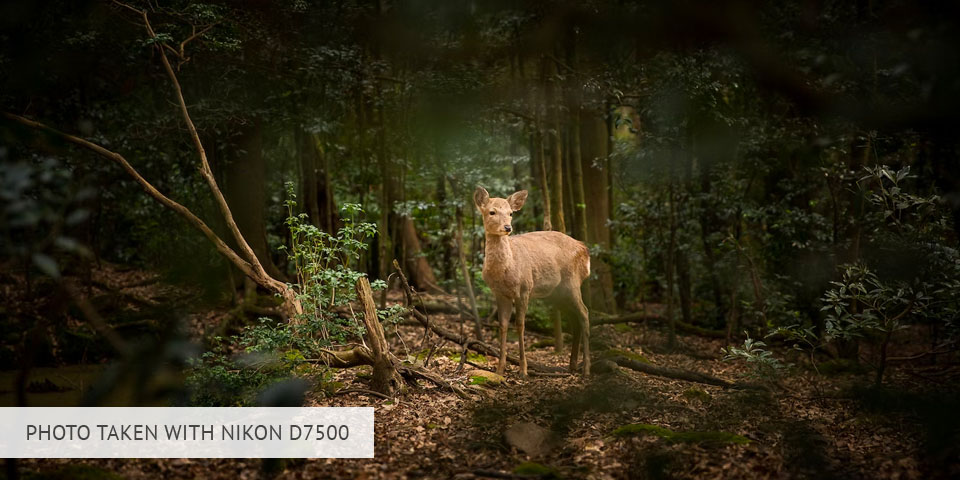
In terms of speed, the D7500 doesn't disappoint. It boasts an impressive 8fps continuous shooting capability and a buffer that can hold up to 50 raw files or 100 JPEGs. This makes it ideal camera for amateur photographers for capturing fast-paced action or creating HDR images through auto-exposure bracketing.
But one notable drawback is the lack of support for faster UHS-II memory cards. This may be a problem for photographers who require faster data transfer and processing speeds. Additionally, some users have reported occasional issues with the camera freezing or experiencing software glitches.
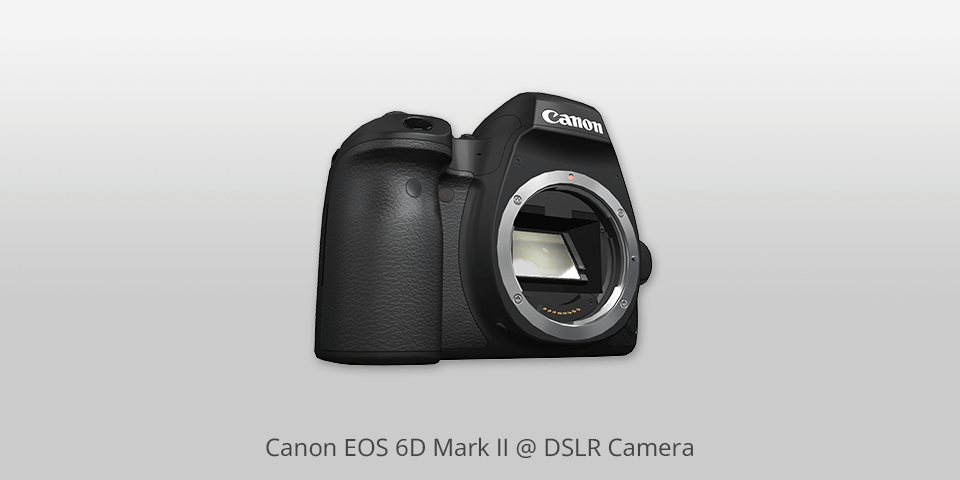
Megapixels: 26.2MP | Max video resolution: Full HD | AF points: 45
This DSLR camera packs a punch with its 26.2-megapixel full-frame sensor and DIGIC 7 image processor. That means you'll get sharp and vibrant images, as well as impressive video quality. Plus, the ISO range of 100-40000 is a game-changer, allowing you to shoot in low light conditions without the need for a tripod.
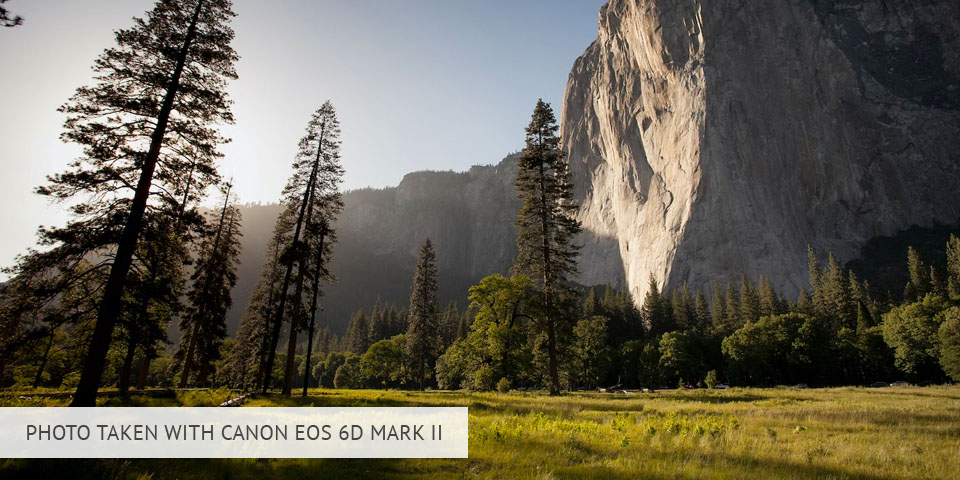
Now, let's talk about the autofocus system. When using the optical viewfinder, you've got a 45-point cross-type system for precise focusing. But here's the cool part: in Live View and movie mode, it switches to Dual Pixel AF, which is fantastic for smooth and accurate focus tracking.
One notable drawback is the lack of optical image stabilization. This means you might encounter some blurry images, especially in situations where stability is crucial. While the camera offers Wi-Fi, NFC, and Bluetooth connectivity for easy control and photo sharing, some users have reported connectivity issues.

Megapixels: 24.1MP | Max video resolution: 4K | AF points: 45
In terms of main characteristics, the T8i shines with its 24.1 megapixel CMOS sensor and DIGIC 8 image processor, allowing for extended ISO range and the ability to tackle tricky lighting conditions. Its 3-inch vari-angle touchscreen is responsive and easy to use, offering flexibility for shooting in tight spaces or capturing unique angles.
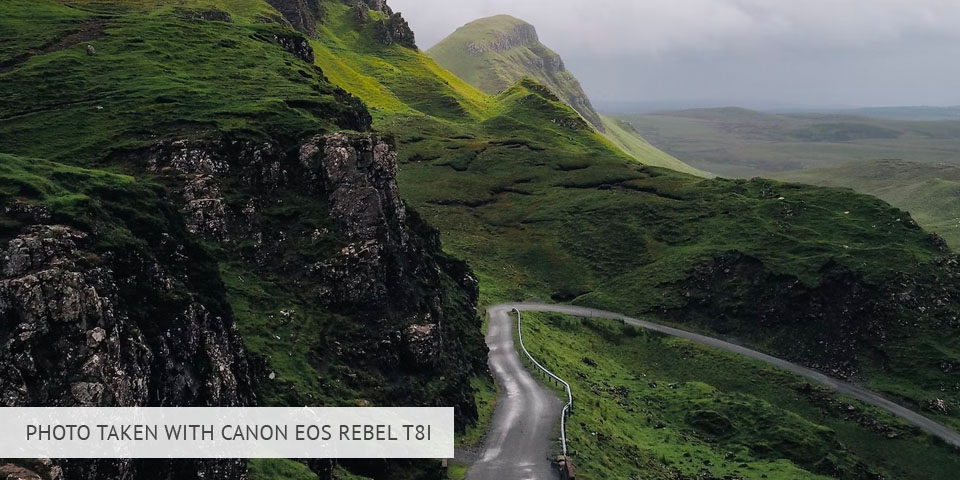
For vloggers, this camera under $1000 offers a number of vlogger-friendly features, including built-in Wi-Fi, remote control app functionality, dedicated XLR audio input and output ports, and a headphone jack for hands-free operation. These features enhance the overall experience for content creators.
While the T8i's autofocus system is impressive, it does lack exposure compensation for stills, which can be frustrating for those who prefer to shoot manually. Additionally, the camera's control layout, although user-friendly, may not be as intuitive as some other models on the market.
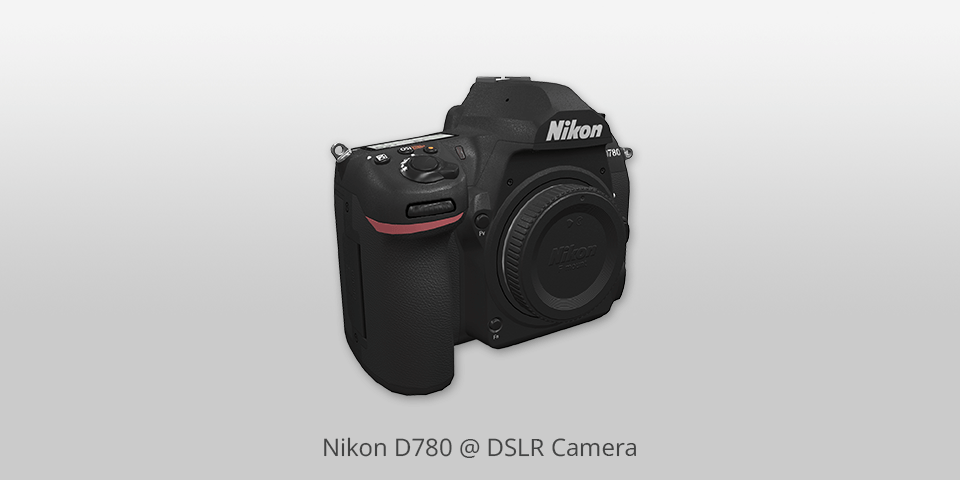
Megapixels: 24.5MP | Max video resolution: 4K | AF points: 51
One of the standout features of this new DSLR camera is its hybrid functionality. It takes the best features from Nikon's mirrorless Z 6 model and combines them with a traditional optical viewfinder, resulting in a highly versatile full-frame DSLR.
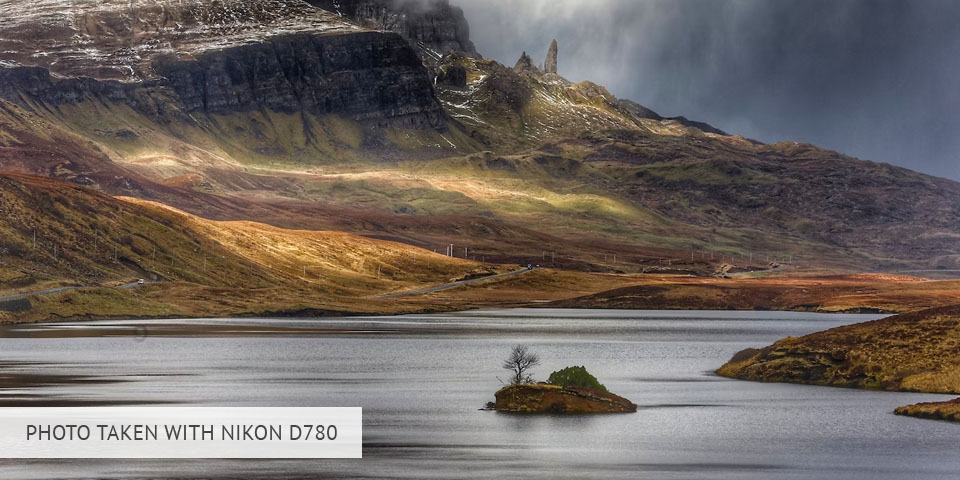
Its 24.5MP backside-illuminated FX sensor delivers excellent image quality with impressive dynamic range, beautiful colors, and stellar low-light performance. This makes it suitable for a wide range of shooting situations, from dimly lit environments to astrophotography.
However, like any camera, the D780 is not without its disadvantages. One notable drawback is its size and weight compared to compact cameras. While it is still well-balanced and offers a compact body for a DSLR, it may not be as portable as some mirrorless cameras on the market.
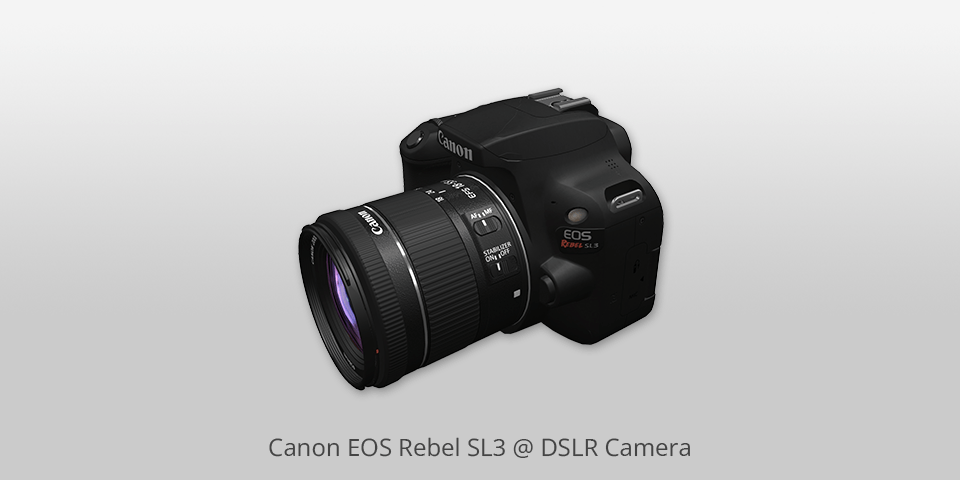
Megapixels: 25.8MP | Max video resolution: 4K | AF points: 143
One of the standout features of this DSLR camera for photography is its high-resolution sensor, which performs well in low-light conditions. The newer DIGIC 8 processor used in the SL3 helps to keep image noise at a minimum, resulting in good image quality overall.
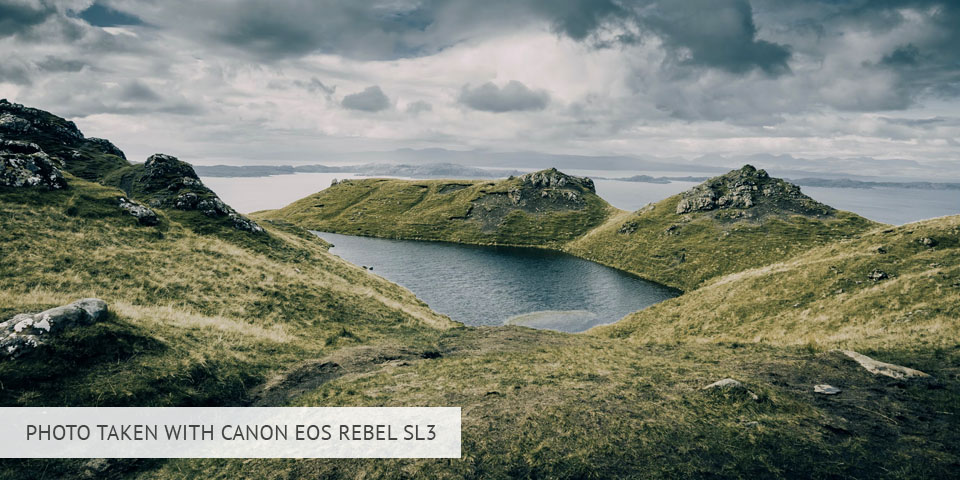
The SL3 also boasts a fully articulating 3-inch display, allowing for flexible shooting angles. Its 1080p video capture capability and Dual Pixel AF system contribute to its appeal for videography. Additionally, the camera comes with a decent set of in-camera image editing tools.
However, it's important to note some disadvantages of the SL3. The autofocus system is a bit outdated compared to more recent Canon DSLR cameras for video, resulting in a large percentage of images being out of focus, even when properly shot.
| IMAGE | NAME | FEATURES | |
|---|---|---|---|

|
Nikon D850
OUR CHOICE
|
CHECK PRICE → | |

|
Canon EOS 5D Mark IV
FOR PROS
|
CHECK PRICE → | |

|
Canon EOS Rebel T7
FOR BEGINNERS
|
CHECK PRICE → |
Let me emphasize the main parameters affecting the qualitative camera performance. These particular characteristics should be learned in the first place to pick the best DSLR camera to satisfy your needs.
Physical image sensor size. It is a measure of the digital noise transmitted to the images. The larger the sensor is, the lighter the light falls on it. Accordingly, more useful information appears. Finally, the use of larger sensors allows getting a brighter image with natural colors.
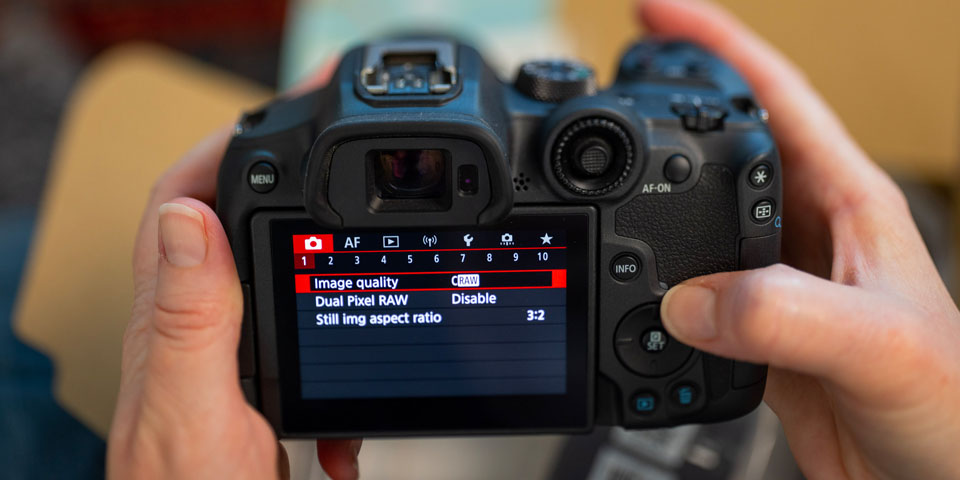
Megapixels and their size affect the picture just like the image sensor size does. The highest megapixel cameras allow getting detailed images. The bigger these megapixels are, the lighter will fall on them.
Burst speed. It is an essential characteristic for sport and reportage photography. Most often the fastest digital SLR cameras are not the quite affordable ones. Don’t forget about the buffer size for such shooting. It should be able to store all your images.
Image stabilization. It compensates for any shaking you might have while holding the camera. This is especially handy when using heavy lenses or shooting in low light.
Optical image stabilization (OIS) uses a gyroscope to adjust the lens or sensor, perfect for still photos. On the other hand, electronic image stabilization (EIS) works better for video. Just keep in mind that both of these features can impact image quality, so choose wisely.
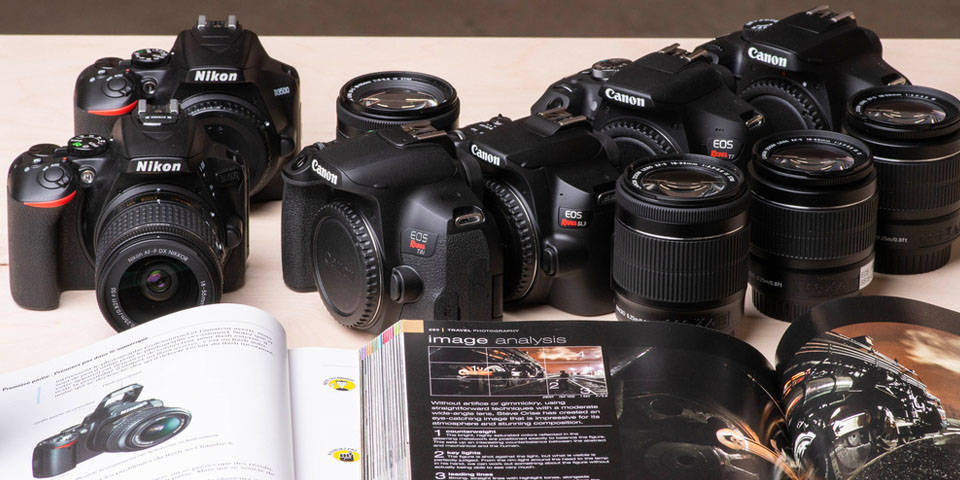
Battery capacity and camera operating time using one battery are important in any genre, except possibly a studio one, where power sources are always nearby. In case of small capacity, purchase a battery grip.
Camera protection against dust and moisture is important for those who shoot in the landscape or street genre.
Dimensions and weight of the camera. It is not a secret that the heavier the DSLR camera for photography, the better it is. But I would not take Canon 1DX Mark III to shoot without a DSLR tripod because in 2-3 hours you will only think about the pain in your neck and hands.